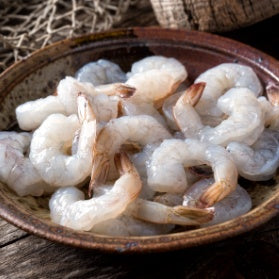Your Cart is Empty
FREE SHIPPING ON ALL ORDERS OVER $125!
FREE SHIPPING ON ALL ORDERS OVER $125!
FREE SHIPPING ON ALL ORDERS OVER $125!
TL;DR
Streamline your seafood sourcing by buying oysters wholesale for cost savings, higher quantities, convenience, and quality. Ensure your supplier provides local, sustainably harvested, and well-stored and handled oysters with quality assurance and temperature-controlled shipping.
Main Points:
As a restaurant owner, your reputation depends on serving your guests the freshest, highest-quality seafood. It may seem logical to source oysters from a local market, a restaurant retailer, or even a warehouse club store. However, higher prices, lower quantities, limited selection, and uncertain quality control can negatively impact your oyster offerings. Importantly, this can also affect your bottom line and reputation.
That’s why many restaurant owners are turning to wholesale oysters.
Buying oysters wholesale can results in a fresh variety that is affordable at scale with convenience, quality assurance, and sustainability at the forefront. In this guide, we’ll explore the benefits of purchasing fresh oysters wholesale. Plus, we’ll discuss how to vet your supplier to ensure the product meets your standards.
While buying seafood from a smaller seafood market or restaurant retailer may have its benefits, wholesalers can offer businesses of all sizes an affordable, sustainable alternative. A larger oyster wholesaler can keep up with your demand, streamlining your ordering process without sacrificing quality.
Here are a few reasons why restaurant owners choose wholesale over retail:
Although larger in size, the right wholesale partner should offer the same quality customer service you expect from small, local retailers. Likewise, many wholesalers work with businesses of all sizes, from family-run businesses to national chains.

If you choose to purchase oysters wholesale, it’s crucial to do your research. There can be variations in the quality and practices from supplier to supplier. To determine where to buy wholesale oysters, ensure you know the answers to the following questions
The freshest seafood is local oysters. The less your oysters have to travel from boat to wet storage, the fresher and more flavorful they will be. Choose a wholesale partner that can tell you exactly where your oysters come from and when they were harvested.
Ideally, they will harvest their oysters from traceable and verified clean open areas. Ideally, On the East Coast of the U.S., some of the best oysters will come from Canada, New England, and the Mid-Atlantic region of North America.
Before your oysters arrive at your restaurant, they need to be processed and stored. This is often the difference between “good” and “great” oysters. The best oysters are washed, graded, hand-selected, and held in a wet storage tank. The best storage processes purge oysters of any impurities, resulting in the best flavor and improved shelf-life. Ideally, oysters will be stored in filtered seawater, where they will thrive and continue to live until they are shipped to the customer until they are shipped to the customer.

North Coast Seafoods Shellfish Wet Storage Tank
Choose an oyster wholesaler who inspects and hand-selects oysters for quality. The most reputable wholesales inspect their seafood in multiple stages. They should be examined and graded in the field, as well as at the wet storage facility.
The best wholesalers perform microbiological testing to guarantee the end quality of your seafood. In many cases, oysters are hand-selected one final time upon packing.
Ideally, at all stages of transportation, oysters should be strictly temperature controlled. Wholesalers should receive their oysters in temperature-controlled trucks or vehicles, and when it’s time to ship them, they should likewise be delivered in refrigerated trucks. Many wholesalers also offer options for overnight freight to customers outside of their region. The less time your shellfish spends in transit, the fresher it will be upon arrival.

Sustainability is the element that sets many high-quality oyster wholesalers apart. The stability of ocean ecosystems and the oysters themselves should always come first. The most important factors are how the oysters are harvested and packaged.
Does your wholesaler take steps to avoid irresponsible harvesting practices ? Do their methods prioritize as minimal impact on the surrounding environment. Do they partner with any sustainability organizations to ensure they are following the best, most modern practices?
Your oyster wholesaler isn’t just your supplier. In the best-case scenario, they are also a partner who is dedicated to the success of your business.
Compared to smaller seafood markets, restaurant-focused retailers, or warehouse club stores, seafood wholesalers should have more information about where their oysters are harvested come from and how they are stored. Likewise, they can answer your questions about which oysters are best to offer at your restaurant, depending on your preferences on seasonality. They can advise you regarding how many to order, and even how to prepare or serve them.
Ask your wholesaler if they can accommodate specific requests, such as particular sizes or varieties of oysters. Often, they can provide customized packaging or delivery schedules to meet your restaurant’s specific needs.
Are you ready to make the switch to wholesale oysters? North Coast Seafoods is the wholesale seafood distributor you're searching for! Learn more about what we offer, including our dedication to sustainability and the finest quality.
Comments will be approved before showing up.



Sign up to receive the best seafood recipes, first access to new products, exclusive discounts and more!